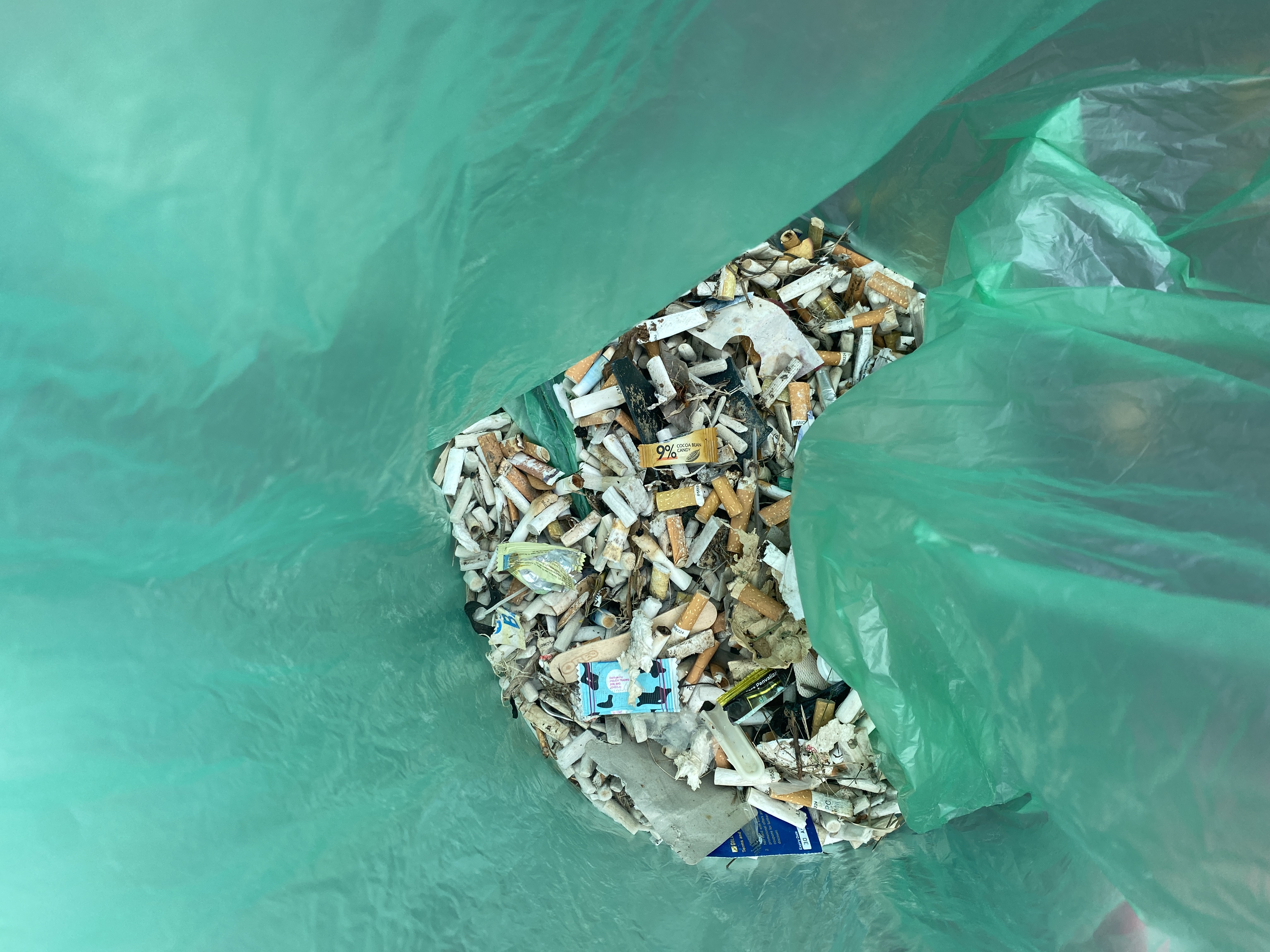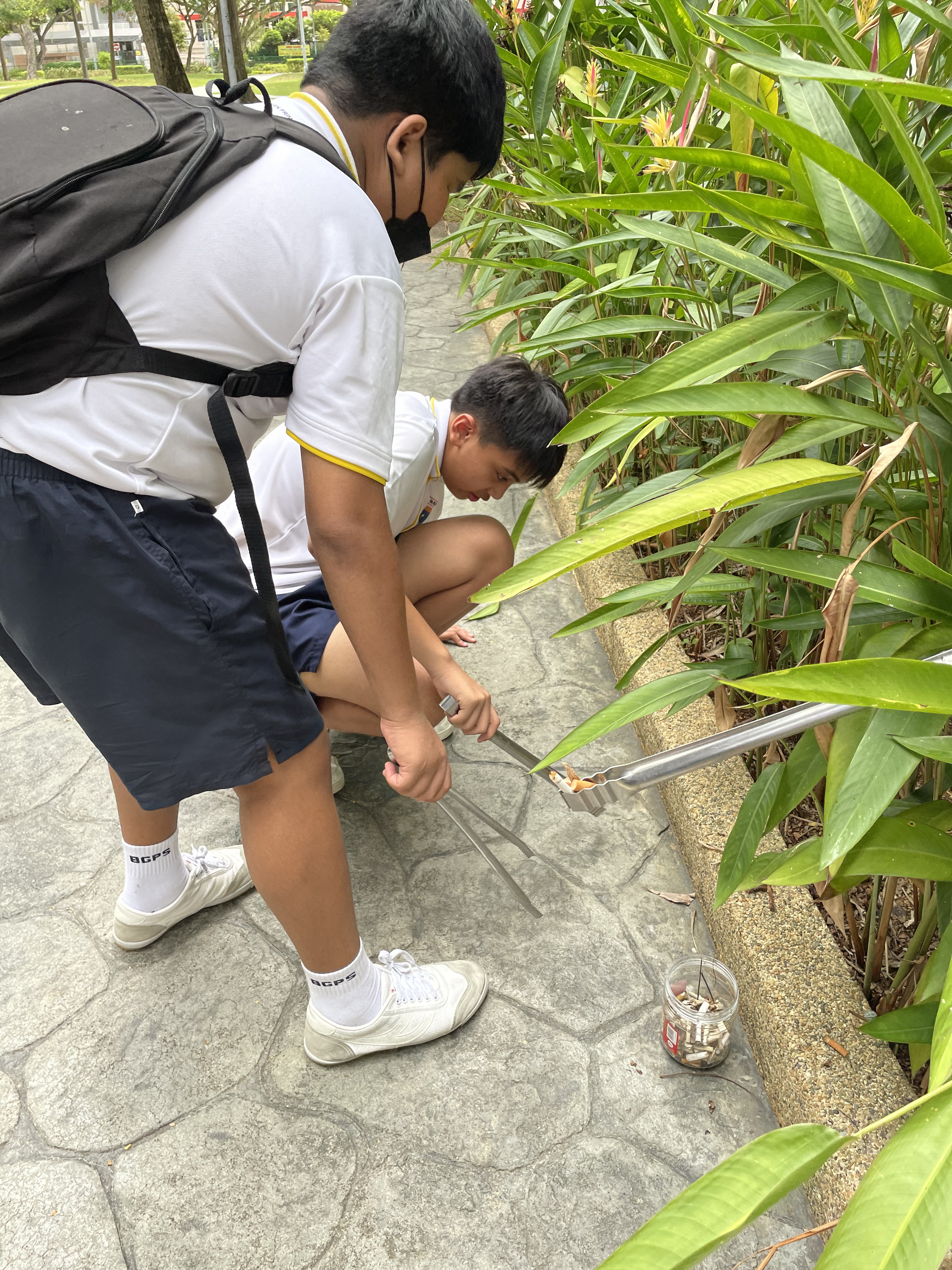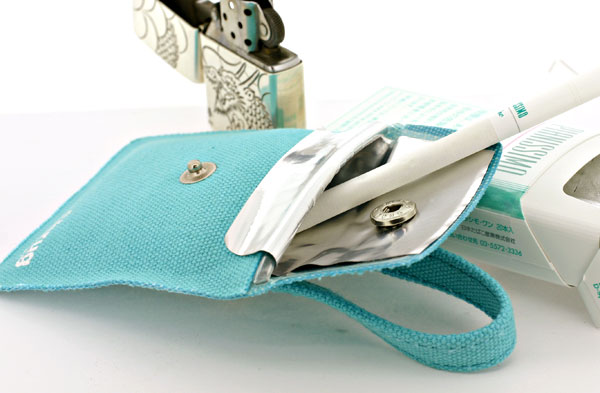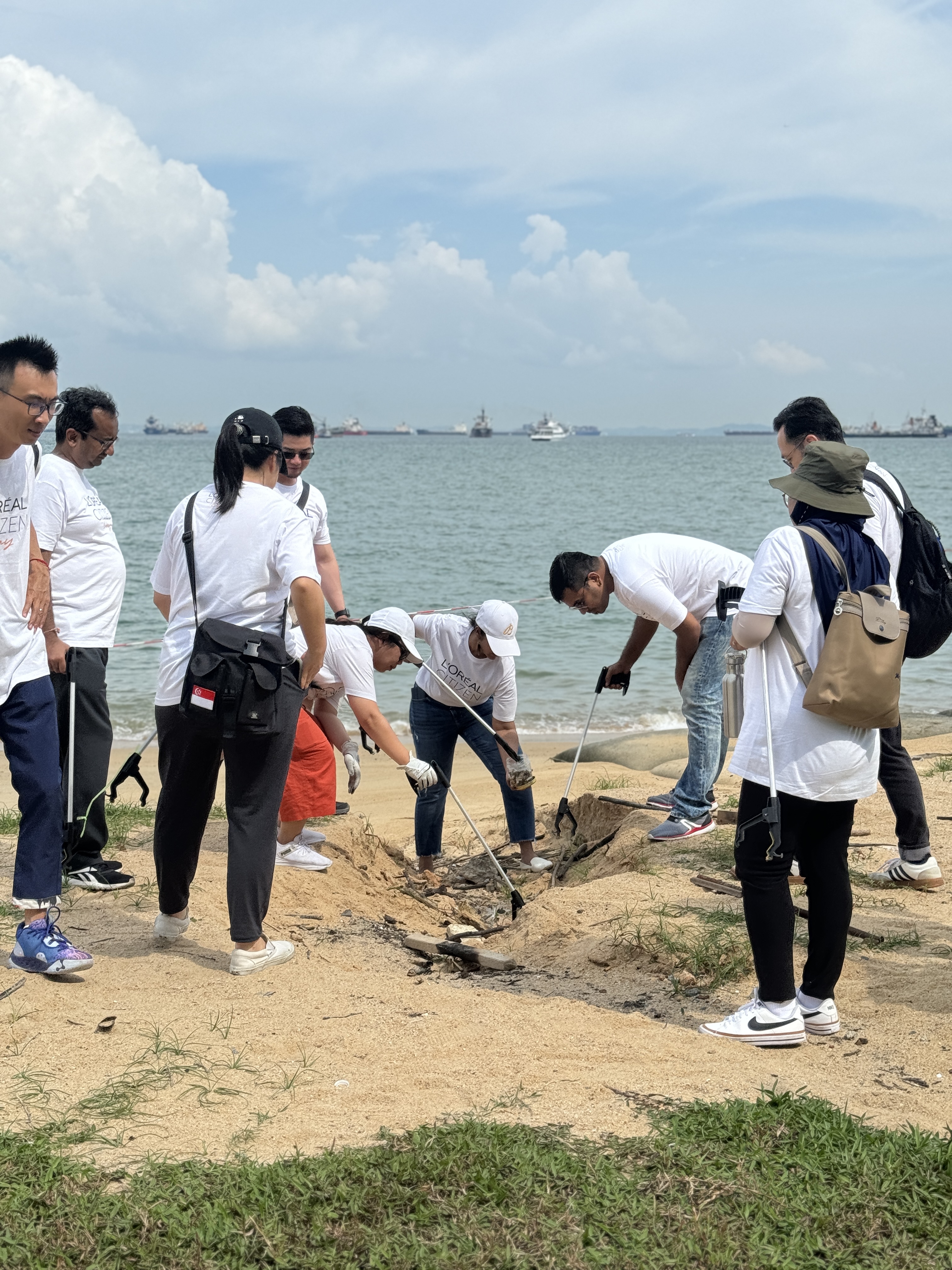
After years of organising urban cleanups across Singapore—from beaches and parks to urban streets and heartland void decks—we’ve come to expect a few constants: the occasional plastic bag, drink bottles, maybe even an abandoned umbrella. But the one thing that shows up every single time we do a cleanup?
Cigarette butts.
Tiny, persistent, and practically invisible unless you’re looking for them — but everywhere all the same. They line curbsides, wedge into pavement cracks, and hide in the grass around benches and bus stops.
And the numbers back this up. Over the past eight years, we conducted more than 150 urban cleanups across Singapore. Cigarette butts were present in 99% of them, and in nearly a third they were the most frequently collected item. In one cleanup, over 1,200 butts were picked up in just one hour.
What makes this especially frustrating is that while cleanups are meant to educate, engage, and build a sense of care for our environment, they’ve increasingly become exercises in picking up the same kind of waste over and over again.
Most of the time, we’re just picking up someone else’s habit.

Think about this:
Is this really the best use of their energy, time and money?

We have been approaching this as a behavioural problem. This is partially true, but what we are not doing is examining the system that makes this kind of littering easy.
If we can ask a hard question:
Why are tobacco producers never part of the cleanup equation?
In Singapore, Extended Producer Responsibility (EPR) schemes are already in place for electronic waste, and soon for packaging. These are products that take years to break down — or may never break down. Yet, while cigarette butts can persist in the environment for up to a decade, their producers are held to zero accountability.

Right now, here’s how the burden is distributed:
In a free economy like Singapore, one could argue that tobacco producers shouldn’t be penalised, since their revenue contributes to the economy. That’s true if we only consider economic value. But looking at the bigger picture—funds spent on educational campaigns, cleaning and maintaining public spaces, or tackling fires caused by careless cigarette butts, plus the time companies and students spend picking up litter—the equation isn’t so simple anymore.
If fridge manufacturers must offer take-back schemes, shouldn’t cigarette producers at least co-fund the removal of the waste they generate? From a social responsibility perspective, companies that profit from cigarettes should at minimum fund bins, support cleanup efforts, or promote behaviour change.

Let me offer a small but powerful social intervention — one that has quietly worked in places like Japan:
Encourage smokers to carry a personal cigarette pouch.
This small, fireproof container fits in a bag or pocket, letting them hold butts until a bin is available.
It is not expensive or complicated. Ultimately, placing trash in a bin is really just decent civic behaviour. After all, if you’re the one smoking, shouldn’t you also clean up after yourself?

To companies with smokers on-site — and yes, this includes office buildings, malls, and food courts. Here are some ways to consider taking action:
Otherwise, you’ll continue paying for cleanups that don’t solve anything — and waste goodwill in the process.
Ultimately, this is not just a smoker’s issue or a volunteer’s frustration. It’s a design failure, and with more people helping out in CSR, it will be a systems oversight if we allow the status quo.
We need to ask:
Let’s stop playing cleanup theatre and make our cleanups more meaningful — and maybe even unnecessary someday.
Get the latest news from Green Nudge
Green Views
Aug 25, 2025
5 min
read
If our economy is built on growing consumption, then waste is not some unfortunate byproduct — it is the expected outcome. While there is reason to acknowledge the efforts made over the years, the released 2024 waste figures by National Environment Agency also reveal something deeper we need to reflect on.
Green Views
Aug 5, 2025
5 min
read
In recent times where efficiency is prioritised and often seen as the default, what does it really mean to be useful? What do we lose when we discard the ‘inconvenient’ in a culture that values speed and optimisation? At Green Nudge, we talk a lot about sustainability for the planet. But increasingly, perhaps the harder (and more important) conversation is about where that intersects with relationships — how we stay in connection so the change we want to see can truly last.
Green Views
June 3, 2025
7 min
read
Singapore recently concluded another round of general elections. We showed up, queued, verified our identity, and were handed a small slip of paper to mark our vote and drop into a ballot box. In a world where almost everything has gone digital — from banking to paying for drinks — why are we still voting with paper and what’s the environmental cost of doing so?